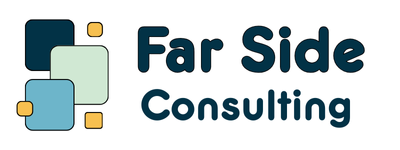When you're crafting a digital marketing strategy for autism therapy, pinpointing the right keywords is essential for connecting with families in need. You might think common terms like "ABA therapy" will suffice, but incorporating long-tail keywords like "affordable autism therapy for children" can greatly enhance your outreach. Additionally, leveraging local SEO with phrases like "autism therapy in [Your City]" not only boosts your visibility but also draws in the right audience. The real question is, how can you effectively optimize these keywords to maximize your impact? Let's explore that next.
Key Takeaways
- Focus on foundational keywords like "ABA therapy," "autism therapy," and "behavior analysis" for digital marketing efforts.
- Incorporate long-tail keywords such as "affordable autism therapy for children" to attract niche audiences.
- Utilize local SEO keywords, including "ABA therapy in [Your City]," to target clients searching for nearby services.
- Create valuable content with keywords like "autism resources for families" to connect with families seeking support and information.
- Analyze competitor keywords using tools like SEMrush to identify gaps and opportunities for capturing traffic.
Importance of Keyword Research
When it comes to digital marketing for autism therapy, understanding the importance of keyword research can't be overstated. Keywords serve as the bridge between your services and the families searching for support. By identifying the terms potential clients are using, you can tailor your content to meet their needs, increasing your visibility in search engine results.
Research shows that 75% of users never scroll past the first page of search results, making it vital to target the right keywords. If you focus on specific phrases related to autism therapy, you're more likely to attract qualified leads who are genuinely interested in your services.
Moreover, keyword research can reveal trends in search behavior, allowing you to adapt your offerings. For instance, if you notice an increase in searches for "teletherapy for autism," you might consider expanding your online services.
Tools like Google Keyword Planner and SEMrush can provide valuable insights into search volume and competition levels, helping you refine your strategy. Ultimately, investing time in keyword research not only enhances your online presence but also fosters stronger connections with families seeking the support they need.
Essential Keywords for ABA Therapy
Identifying essential keywords for Applied Behavior Analysis (ABA) therapy can markedly impact your digital marketing strategy. By focusing on the right terms, you'll guarantee that your content reaches those who need it most. Start with keywords like "ABA therapy," "behavior analysis," and "autism therapy" to establish a strong foundation.
Next, consider related terms such as "ABA techniques," "behavior modification," and "social skills training." These keywords not only highlight your services but also help potential clients understand the value you provide.
Don't overlook geographical keywords like "ABA therapy in [Your City]" to draw in local clientele. Incorporate phrases that reflect common questions or concerns, such as "ABA therapy for children," "how ABA helps autism," and "benefits of ABA therapy."
These long-tail keywords align with user intent and can improve search rankings. Lastly, analyze competition and search volume data to refine your list. Tools like Google Keyword Planner can give you insights into what people are searching for.
Long-Tail Keywords Strategies
Long-tail keywords are the secret weapon in your digital marketing arsenal for autism therapy. These specific phrases often contain three or more words and target a niche audience, making it easier for you to connect with the families and individuals seeking your services.
When you focus on long-tail keywords, you're not just increasing visibility; you're also enhancing the relevance of your content.
Consider these emotional triggers when selecting your long-tail keywords:
- "affordable autism therapy for children"
- "best ABA therapy techniques for toddlers"
- "how to choose an autism therapist"
- "autism therapy success stories"
- "understanding autism therapy options"
Local SEO Keywords for Therapists
Harnessing local SEO keywords can greatly boost your visibility as an autism therapist in your community. By focusing on keywords that include your location, you can attract clients who are searching for services nearby. For example, using phrases like "autism therapy in [Your City]" or "ABA therapy near me" can markedly improve your chances of being found online.
Research shows that 46% of all Google searches are looking for local information. This means that optimizing your website and online profiles with local keywords is essential. Incorporate city or neighborhood names into your website copy, meta descriptions, and blog posts to enhance visibility.
Don't forget to list your practice on Google My Business. This free tool allows you to manage how your business appears in local search results, and it's vital for driving traffic. Encourage satisfied clients to leave reviews, as positive testimonials can also boost your local ranking.
Lastly, stay updated with local trends and community events related to autism therapy. This not only enriches your content but also positions you as a knowledgeable resource in your area.
Content Marketing Keywords
Creating valuable content that resonates with your audience is essential for effective autism therapy marketing. By focusing on the right keywords, you can connect with families seeking support and information.
Here are some content marketing keywords that can amplify your reach:
- Autism therapy techniques: Highlighting various methods can attract parents enthusiastic for effective solutions.
- Parent support for autism: This keyword taps into the emotional journey of caregivers, offering them a sense of community.
- Sensory integration therapy: A popular term that can guide parents to specific therapeutic options.
- Autism resources for families: Providing valuable resources positions you as a trusted authority in the field.
- Behavioral therapy for autism: This keyword targets families looking for evidence-based interventions.
Incorporating these keywords into your blog posts, articles, and social media content can greatly enhance your visibility.
Monitor engagement and adjust your strategy as needed. Remember, the goal is to create content that not only informs but also inspires trust and connection within the autism community.
Analyzing Competitor Keywords
Understanding the keywords your competitors are using can provide valuable insights into their strategies and audience engagement. By analyzing these keywords, you can identify trends and gaps in the market.
Start by using tools like SEMrush or Ahrefs to uncover which keywords drive traffic to your competitors' websites. Look for high-volume keywords that are relevant to autism therapy, as well as long-tail keywords that might indicate specific audience needs.
Next, evaluate the context in which these keywords are used. Are they incorporated into blog posts, landing pages, or social media content? This will help you understand their content strategy and engagement tactics.
Pay attention to the keywords your competitors rank for but aren't effectively utilizing; this could present an opportunity for you to capture that traffic.
Conclusion
In the vast garden of autism therapy digital marketing, keywords are the seeds that help your message bloom. By nurturing essential, long-tail, and local SEO keywords, you can cultivate connections with families seeking support. As you analyze competitor keywords, you're not just planting ideas; you're sowing trust and authority in your field. Embrace these strategies, and watch your practice flourish, providing the light of hope and guidance for those on their journey to understanding and healing.

